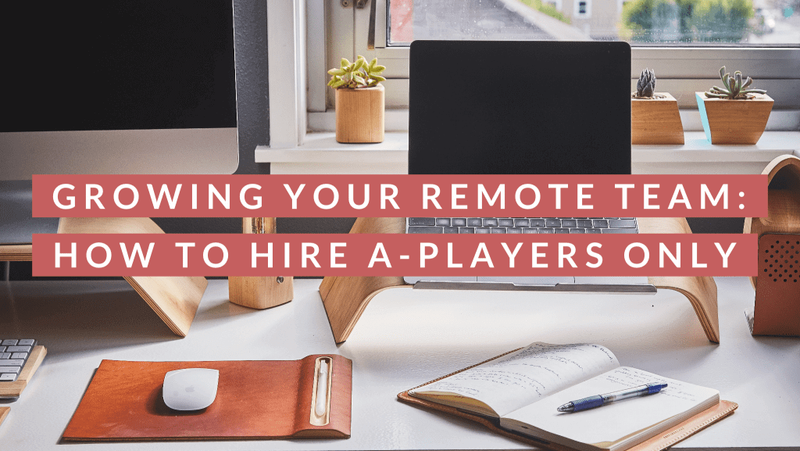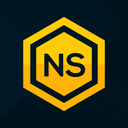Achieve Remote Work-Life Balance

Here’s some help to make sure you get the work-life balance you deserve while achieving great results at work and enjoying your time off from work. Shifting to a remote work schedule and responsibilities isn’t as glamorous or straight forward as one might think. If you find the transition isn’t handled well and the correct balance achieved, you may find yourself overworked, overwhelmed, and wishing you were back in the office.
Let’s get the important work done so you can have the work-life balance you need
Identify The Important Work:
Congratulations – you made the decision to work remotely You have a remote job (or will soon) and you have the freedom and flexibility that you were looking for. But with that flexibility, it is easy to feel like you are always working. Maybe you start in on a project at 8 am sharp. You get 20 minutes of great work done. Then, somehow it’s 10 am and ever since that first 20 minutes you have been ‘busy’ responding to emails, making and receiving quick unscheduled calls, and walking the dog. It’s all productive, but it’s also a distraction from the real focus work that you started out with.
Remote work-life balance doesn’t automatically fall into place when you land your dream remote work gig. In fact, the opposite may be true. When you leave the shackles of the workplace, you leave a structure that you may have been relying on more than you realized. How do you control the time spent working so that you have time for the life you want to live?

You have “big rock” projects, “pebble” tasks, and “sand” duties
Are you ready for an analogy? Picture a large empty jar. Aside this jar are three smaller jars. One contains large rocks, the second has medium-sized pebbles, and the third contains sand.
If you take the jar filled with sand and empty it into the big jar, then add the pebbles, and finally, you attempt to place the big rocks – there’s not enough room. The big jar will overflow.
If you switch the order and start with the big rocks, then the pebbles, and then the sand, all of the three smaller jars can fit into the larger jar. (Don’t trust me? I didn’t invent the concept. Google ‘big rocks productivity’ and you will find a video).
Fitting the rocks, pebbles, and send into the jar is how you get the important work done and achieve remote work-life balance.
Focus on the big tasks first, and then let the smaller things fit in around the edges.
Big Rocks = Most Important Projects
The big rocks are the projects that require deep focus. These tasks may take days, weeks, or even years to accomplish. They require that you devote uninterrupted time to them. Oftentimes these are the most important things on your to do list. These are the things that get you further toward your big-picture goals in the long-run. However, because they cannot be completed quickly, and therefore you will not receive an immediate reward or satisfaction of completion, these are easy to put off…and off and off.
Pebbles = Medium Tasks
The pebbles are the medium tasks. You need to get them done, and they may take a few hours, but they do not require the same level of focus as the big rocks. You could schedule these when you are getting fatigued, or at times of day when you are not at your best. If you get interrupted while working on a pebble, it will cost you a little bit of time to refocus, but it will be pretty easy to get back to it.
Sand = Everything Else
Finally, the sand represents all the other stuff. It’s the administrative tasks for your work, it’s responding to run of the mill emails. This is the daily to do list that may contain 10 or 20 items, each may take a level of energy to complete (sometimes a lot when it’s a task you don’t want to complete), but once you get started you can have that sucker crossed off within 5, 10, maybe 30 minutes. It’s important, but you can fit it in around the edges.
How do you fit in the big rocks?
Most importantly, experiment with what is best for you. Try something for a week and take notes. When you feel the time is right, reflect on how it works for you. Then tweak it or throw it out and try something new. There is no one right answer because we are all unique. The typical 9-5 puts us all in a box and expects us to all work the same way within the same perimeters. It’s inefficient. You found a different path, but now you have the responsibility to take your freedom and find what’s efficient for you.
Some practices to implement and try:
- Sometimes it’s true that if you don’t schedule it, it will not get done. Put even the little things on your calendar and stick to it. This also saves mental energy – you do not have to keep thinking about needing to get something done.
- Take scheduling to the extreme and block out your entire day so you know what you will be working on at every minute.
- Batch your scheduling. You may not have complete flexibility for scheduling work meetings and other set obligations, but to the extent you can, schedule similar types of tasks together so that you have more blocks of open time for deep work, including space to be creative. Can you schedule meetings back-to-back one day per week? Can you schedule chunks of time each day to respond to email and let people know you will not be responding all day?
- When you are working on big rock tasks, you are going to start thinking about other things you need to do. These may be important but this is the sand that you can fit in. Keep a running list next to you. Write it down. When you lose focus, give yourself a set time to turn to your list. Have 10 minutes before a meeting? Turn to the list.
Still not working? Be critical and assess your day
Set a timer when working on a project that requires focus. You may find that just sitting down (or standing) and working for 20 minutes at a time will allow you to get an amazing amount of work done.
If you find yourself continually distracted, or ending your day unsure what all you got done, keep track of your time for a few days. Write down everything you were doing, every task switch, every bathroom break. Be honest with yourself and then look it over and honestly assess what you do with your time. Are you happy with it? Are you spending more time than you realized on certain tasks?
It is possible you will even realize that days just aren’t that long and you may have an overdeveloped sense of what you can accomplish in 24 hours, which is as valuable a lesson as anything. If social media browsing is something you do midday and it’s not a necessary part of your job, consider using a feature on your phone or an app to track your usage. You may be spending more time than you realize.
Reflect on what works for you
After you try out a productivity practice for at least a week, take the time to reflect. Write out your reflections on the practice to help you decide whether to stick with it or modify it or to throw it out. The following questions can get you started.
- Was it easy to implement? If not, what about the practice are you resisting the most? Can you identify why?
- Setting aside whether it was a result of the practice, write down answers to these questions:
- How productive were you during the week [or whatever time period you tried it out]?
- How relaxed were you during the week?
- What did you do for fun during the week?
- Were you focused in a positive way?
- Reflecting on your answers to #2 – what else, other than your new practice, could have caused the positive or negatives that happened that week?
- Now ask how the practice contributed to your answers in #2?
- What now. Will you continue with the practice? Modify it? Or throw it out because it isn’t for you right at this moment?
Now to the life part about remote work-life balance.
It’s likely that it’s the other passions and interests in your life are what drove you to find remote work. Remote work can provide an amazing opportunity to do these other things while earning a stable income, but only with focused energy to use your time wisely. You have the opportunity to control your schedule to be an awesome employee but also spend time on the other important things in your life. Will you make the most of the opportunity?
About the Author:
Elizabeth Smith is a health coach, attorney, and triathlete living in Juneau, Alaska. As a health coach, she works with clients locally and remotely to identify paths to improve their health including career, self-care practices, diet, exercise, and relationships.
Related Posts:


Featured Remote Jobs
 New Job! Featured Job Remote Job
New Job! Featured Job Remote Job New Job! Featured Job Remote Job
New Job! Featured Job Remote Job New Job! Featured Job Remote Job
New Job! Featured Job Remote Job New Job! Featured Job Remote Job
New Job! Featured Job Remote Job Closes in 10 days Featured Job Remote Job
Closes in 10 days Featured Job Remote Job Closes in 7 days Featured Job Remote Job
Closes in 7 days Featured Job Remote Job Closes in 3 days Featured Job Remote Job
Closes in 3 days Featured Job Remote Job Closes in 2 days Featured Job Remote Job
Closes in 2 days Featured Job Remote Job
